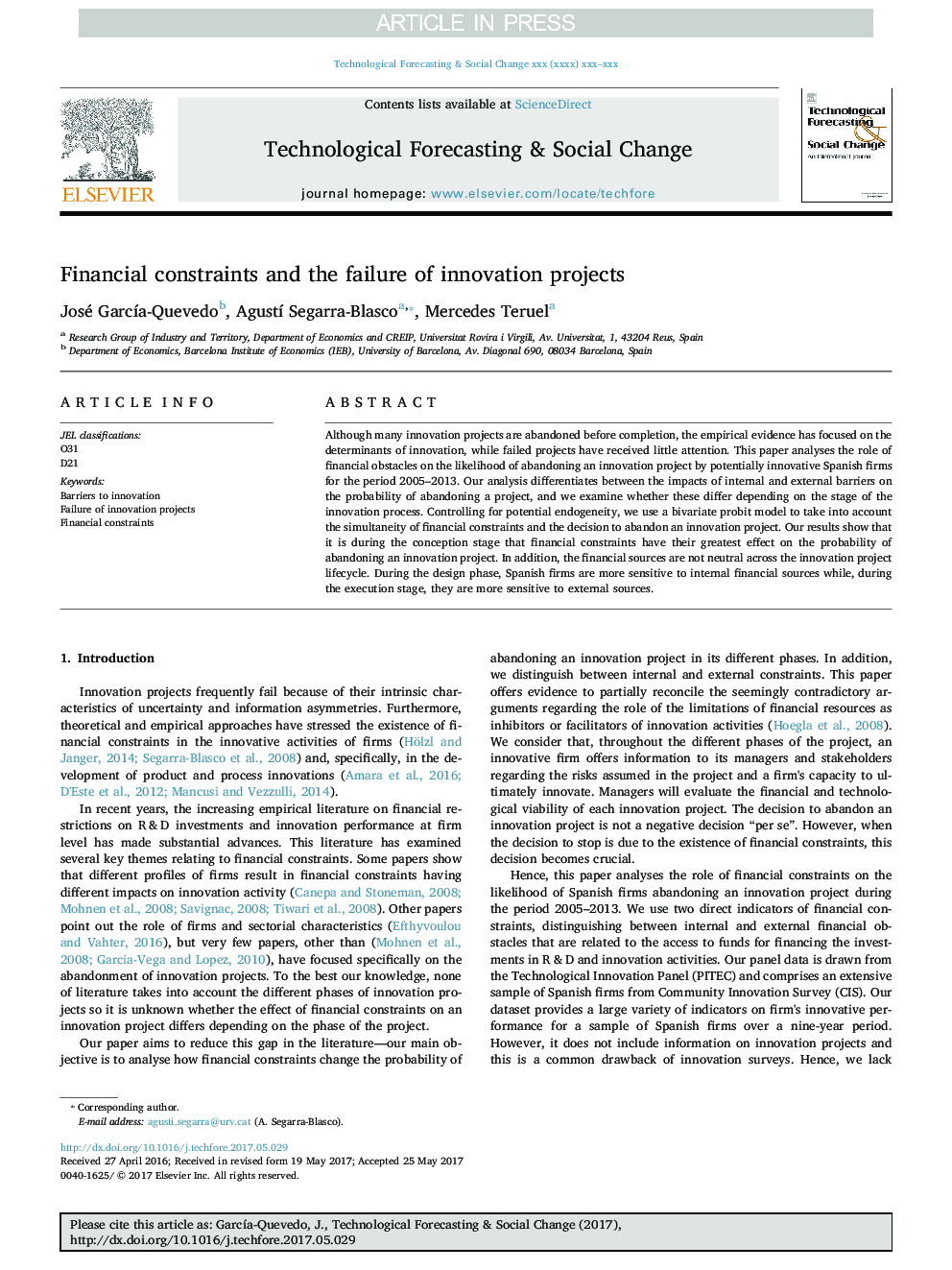| Article ID | Journal | Published Year | Pages | File Type |
|---|---|---|---|---|
| 7255733 | Technological Forecasting and Social Change | 2018 | 14 Pages |
Abstract
Although many innovation projects are abandoned before completion, the empirical evidence has focused on the determinants of innovation, while failed projects have received little attention. This paper analyses the role of financial obstacles on the likelihood of abandoning an innovation project by potentially innovative Spanish firms for the period 2005-2013. Our analysis differentiates between the impacts of internal and external barriers on the probability of abandoning a project, and we examine whether these differ depending on the stage of the innovation process. Controlling for potential endogeneity, we use a bivariate probit model to take into account the simultaneity of financial constraints and the decision to abandon an innovation project. Our results show that it is during the conception stage that financial constraints have their greatest effect on the probability of abandoning an innovation project. In addition, the financial sources are not neutral across the innovation project lifecycle. During the design phase, Spanish firms are more sensitive to internal financial sources while, during the execution stage, they are more sensitive to external sources.
Keywords
Related Topics
Social Sciences and Humanities
Business, Management and Accounting
Business and International Management
Authors
José GarcÃa-Quevedo, Agustà Segarra-Blasco, Mercedes Teruel,
